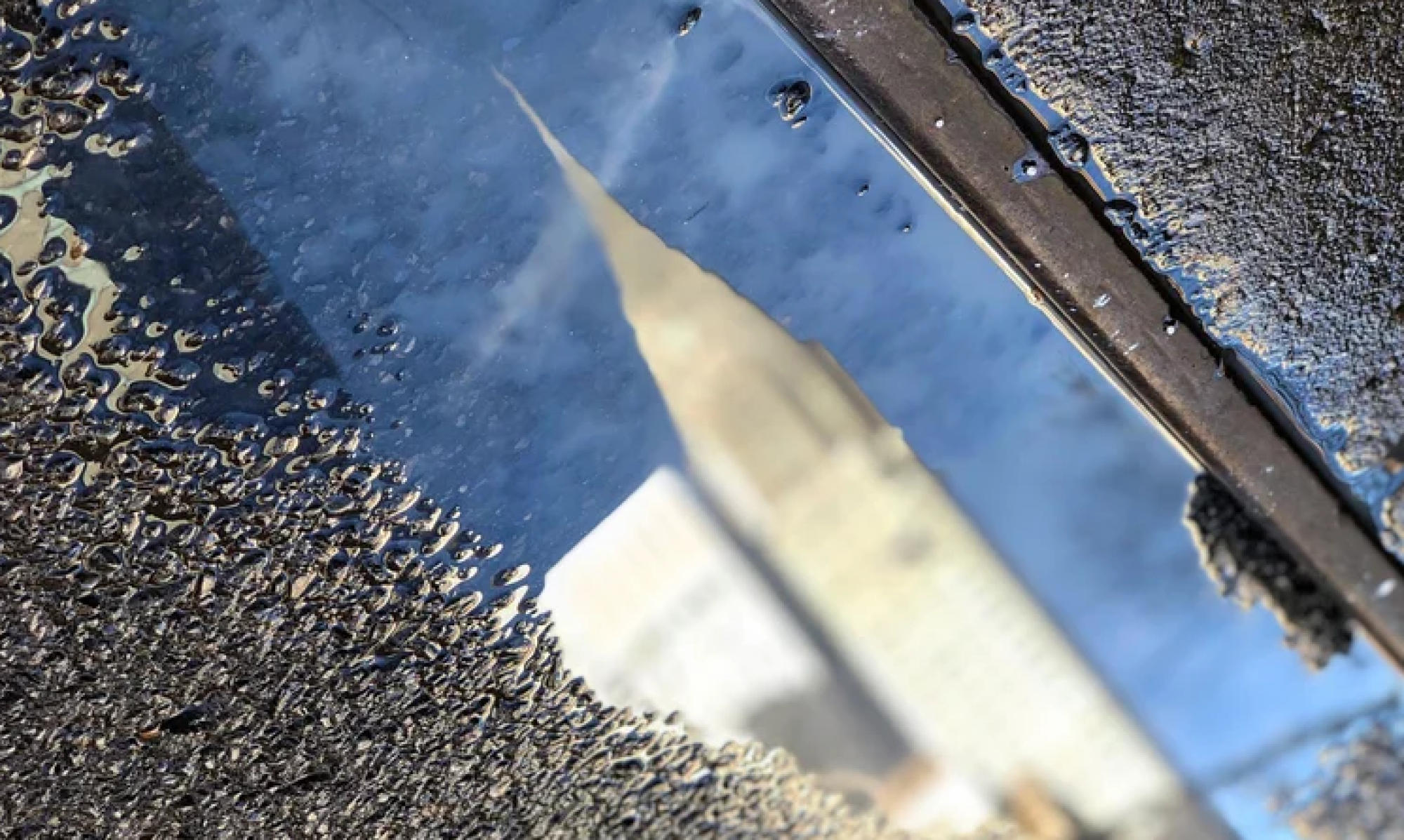PEOPLE IN THE SUN
Used as we are to seeing bodies
Lotion lathered, craftily bikini bare
For a final burning, we cannot but be surprised
To see these mid westerners, reclined,
Leaning back, facing the sky with ease,
Fully clothed, devouring the heat, hair
Firmly brushed back, ladies, heads disguised
In oversized hats, tilting to examine
The distant mountains. One of them
Has had enough of it and has closed his
Eyes, to the memory of past the incoming nights.
But there in the far back row with book and pen
Another takes notes; what can mountains make of this
Scene, rising to embrace the pouring light.
THE GIRLIE SHOW
At fifty she strides confidently on stage
Grateful to God for her firm breasts, her tight
Calf muscles, the minimum required to keep
Her raucous fans pleased. Like a meditative sage
She looks straight ahead, permitting just the right
Permissive look. A few strain for a fuller peep.
She is unaware of the Commissioner's
Plans to shut down girlie shows. He knows
They stir passions. On public podiums he claims
He knows dirt when he sees it , prefers prayer.
But doubts emerge. Might not the show
Keep rowdies off the street; should he maim
Longing for gorgeous God perfect sly
Forms. The stage goddess smiles. She meant,
No harm, struts, trying not to scream.
Utterly stoic, orchestra players, eyes
Averted supply supportive music, heads bent
Floorward, see only shoes, as they dream.
RAILROAD SCENE
The perspective, opening on to a small
Sheltered town is beguiling to a young boy
On the wrong side, intent on jumping cars
Sees in boundless risk flashes of joy.
Illusion of freedom tires and decades later
drawn by nostalgia, again he sees it all,
In the wondrous light of an earlier day,
The signal tower with crumbling plaster
Bereft of signals, no need to switch, now a broken toy,
Or the empty house where the couple, nameless,
Everyone knew, lived forever. What remains?
Threatened hills, skeletal trees, leafless?
Where did they go with nothing to sustain
Them? Look hard. All track. No train.
BRIDGES
For a painter who despised ironworks
Seeing only abuses by oxygen, a future of rust
He painted many bridges. In each the perspective
Is ambiguous. Easel tilted by a torn bank,
Or tilt of vision, seeing old worlds
Leaning too quickly into the inevitable new.
Underneath, cargo ships shrouded in black,
Seem stilled commerce deemed shameful.
Absent from bridges, people, no one
Leaning for an expansive river view.
On the far side are houses, very old houses,
Predating bridges, blotches of sunshine.
If we move closer, we think we see or imagine,
A head framed in the window, an arm extended,
In what could be welcome or goodbye.
AI AT THE AUTOMAT
She arrives out of the night, timing
The hour empty of people, so she can
Draw a book, pretends to read, is awed
By the new automat, credit ready
Recognizing her orders by her voice
And when she is done inquires politely
Of any other wish, coughs high calorie nothings.
She is surprised how appetites abandon,
When you most need them, throws all down
The machine’s gaping garbage mouth.
She sees in the black window’s mirror image,
Inverted runway of automat lights
Where angels could land. Enough she says
And retreats into shadows she flew from.
*****
Pramod Lad was born in India and has a Ph.D. in Biochemistry from Cornell University He was a scientist at the National Institutes of Health. His poems have been accepted in wilderness house, The Examined Life Journal, Right hand pointing, Omentum, Eclectica magazine, The Innisfree poetry journal, The Umbrella Factory, The Pulsebeat Poetry Journal , Pennine Platform, Litbreak Magazine,. Amethyst Review, Soul Forte, Creations Magazine , Austur Literary magazine, Closed Eye Open, Waxing and Waning.. neologism , verse virtual.
Author’s Comment: Although critics frequently characterize his paintings as illustrative of alienation, I have found his paintings address many themes. These include the encroachment of industry and technology on nature, repression of sexuality, the confinement of office work and the workplace, the decay of old towns and of course the alienation produced by modern industrial culture. I have tried to illustrate these themes in the poems.
For more Pramod Lad on Litbreak –


